Dogs and Destructive Scratching
When people talk about destructive scratching, cats are usually the animal that comes to mind first, but dogs can also be very destructive scratchers.
Seeking attention, separation anxiety, and trying to get to something they can't reach are the most common reasons for dogs to scratch.
Seeking attention
This scratching behavior occurs because the behavior has been rewarded with attention. To a dog, even 'bad' attention is better than none, so we often unintentionally reward behavior we don't want. Perhaps the dog scratched on your arm, a door, or any other surface. You corrected the dog, scolded him, pushed him away, but the end result is that the dog got what it wanted - your attention.
Scratching Doors, Windows, Furniture
Scratching at the door or window is usually caused by frustration or anxiety. The dog can't get to the other side to reach what he wants, another animal, person or object. Separation anxiety may be involved. This behavior is often rewarded with attention and thereby reinforced. When the dog scratches at the door and you open it, he learns that scratching the door will get the thing he wants, attention or access to that person or animal he wanted to reach.
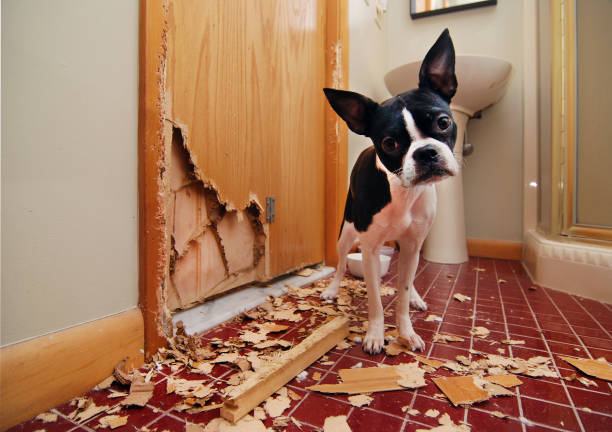
Reasons Dogs Scratch Doors and Windows?
- Seeking attention
- Separation anxiety
- Wants to get to something he can see or hear on the other side
- Energy to burn
Tips to Stop Dogs from Scratching
- Ignore the behavior IF it is not going to hurt a person, the dog or cause damage to property. By not acknowledging his action, you will no longer be reinforcing it, so it will gradually die out. Unfortunately, scratching behavior usually does cause injury or damage, so this is often not the best technique.
- If the dog is scratching you, this is attention getting behavior. Teach him to sit for attention, with all four feet on the floor. Make sure you are spending quality time with your dog each day, playing or training fun behaviors so give the dog other ways to get your attention. Use feeding toys or puzzles to keep him occupied when you need time to yourself.
- Manage the situation by preventing your dog from having access to what he is scratching. Keep him in his crate when you are unable to watch him, i.e. when you are out of the house or asleep. Keep him near you when you are home, either in the same room or even on a leash attached to you or a piece of furniture near you so that you can see if he starts scratching.
- Redirect to an appropriate behavior. If the dog is scratching at the window or door to get at something on the other side, call him to you and reward him for coming. Do not allow the behavior to start if possible. If you catch him scratching, call him away as quickly as possible. DON'T scold him when he comes to you... 'come' was the last thing you asked him to do, that's what he will think he is being punished for. Instead, reward him for coming to you. Give him something else to direct his energy at, a toy or chew bone.
- There are plastic door protectors (see picture at the top of the page)and other items can be use to discourage scratching at doors and window while you are training. We discuss options in our classes.
If your dog can't be crated because he hurts himself trying to get out of the crate, you need to seek professional help. Separation anxiety can be difficult to deal with. Speak to your veterinarian. You may need medication to help ease the dog's anxiety in conjunction with training to help resolve the behavior.
Back to Training Tips
I would love to help you with your pet's training needs. Please drop me a note if you enjoyed this site or if you have any questions about classes or any other pet related questions. Check out our classes!
Thank you,
Judy Seils
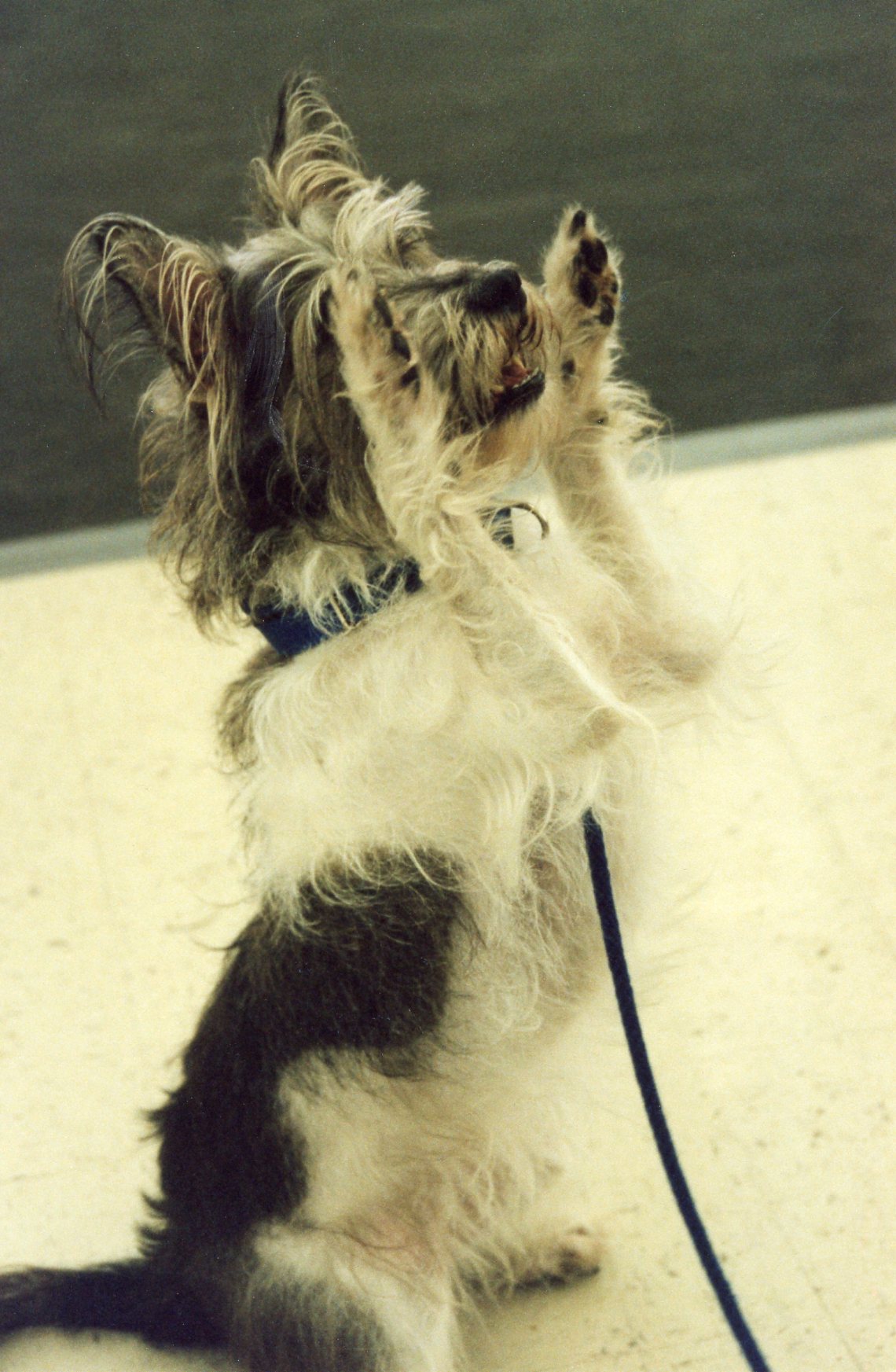
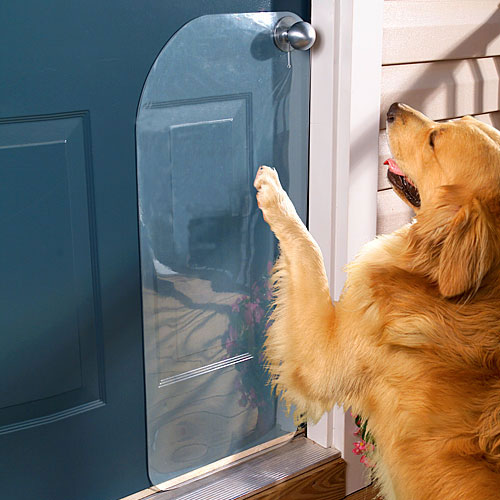



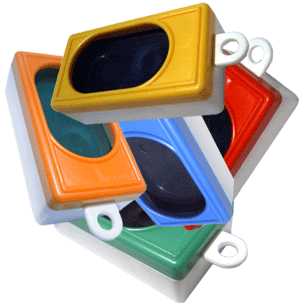
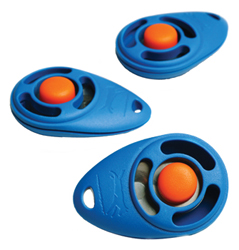




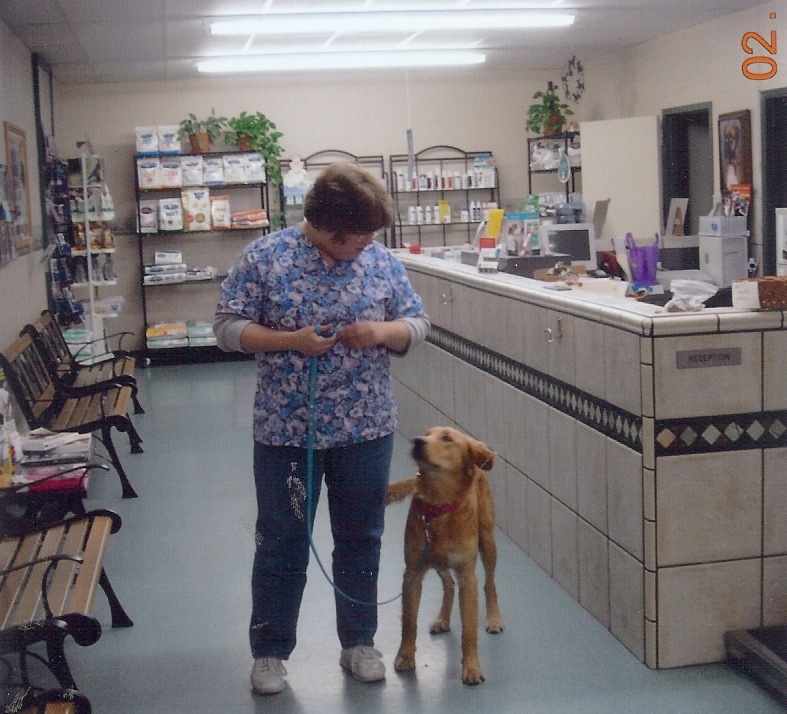

Shouldn't Your Pet Have Pawfect Manners?
You can have a well-behaved pet, let me show you how.
Schedule Your Class!(281) 440-6818
judy.pawfectmanners@gmail.com